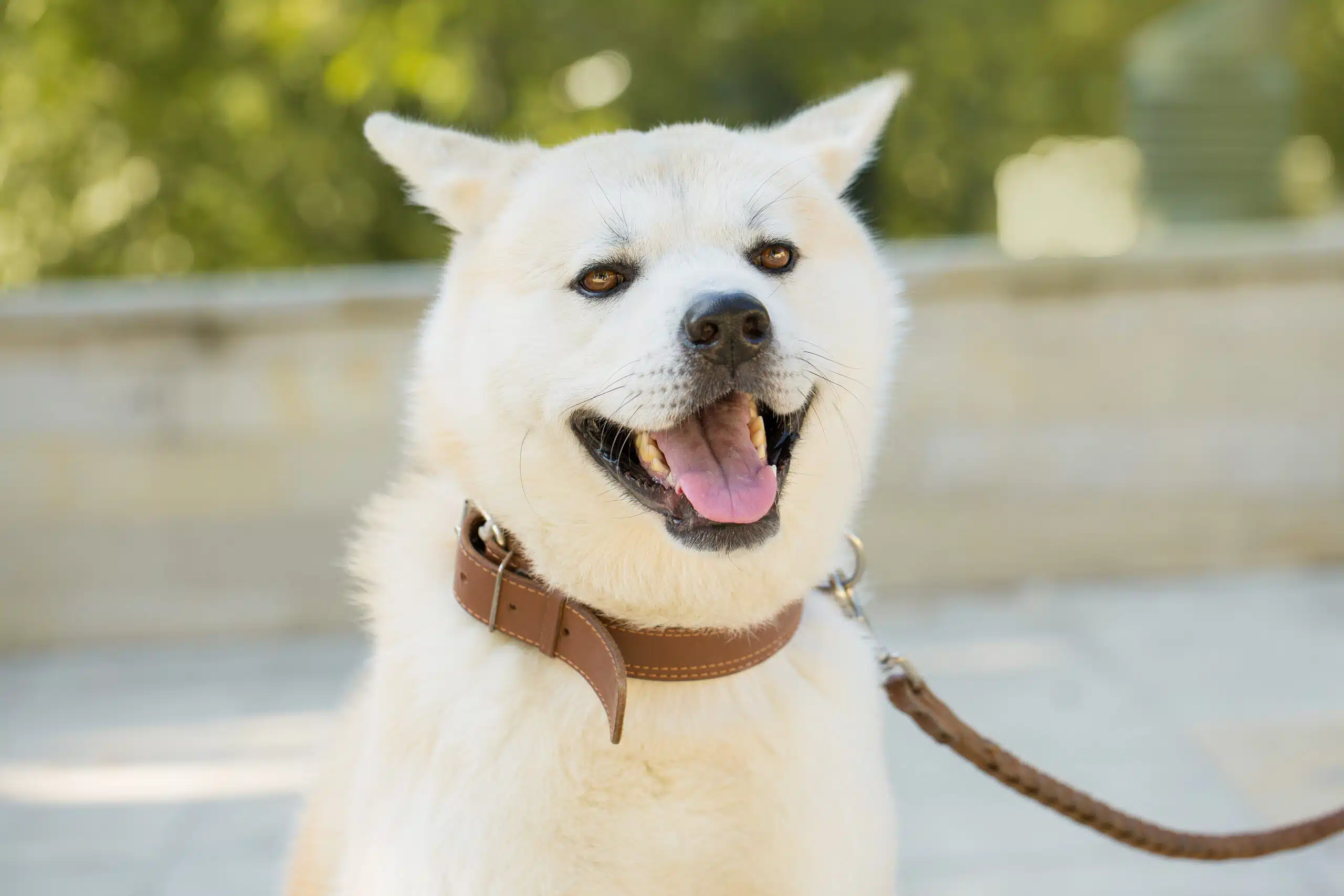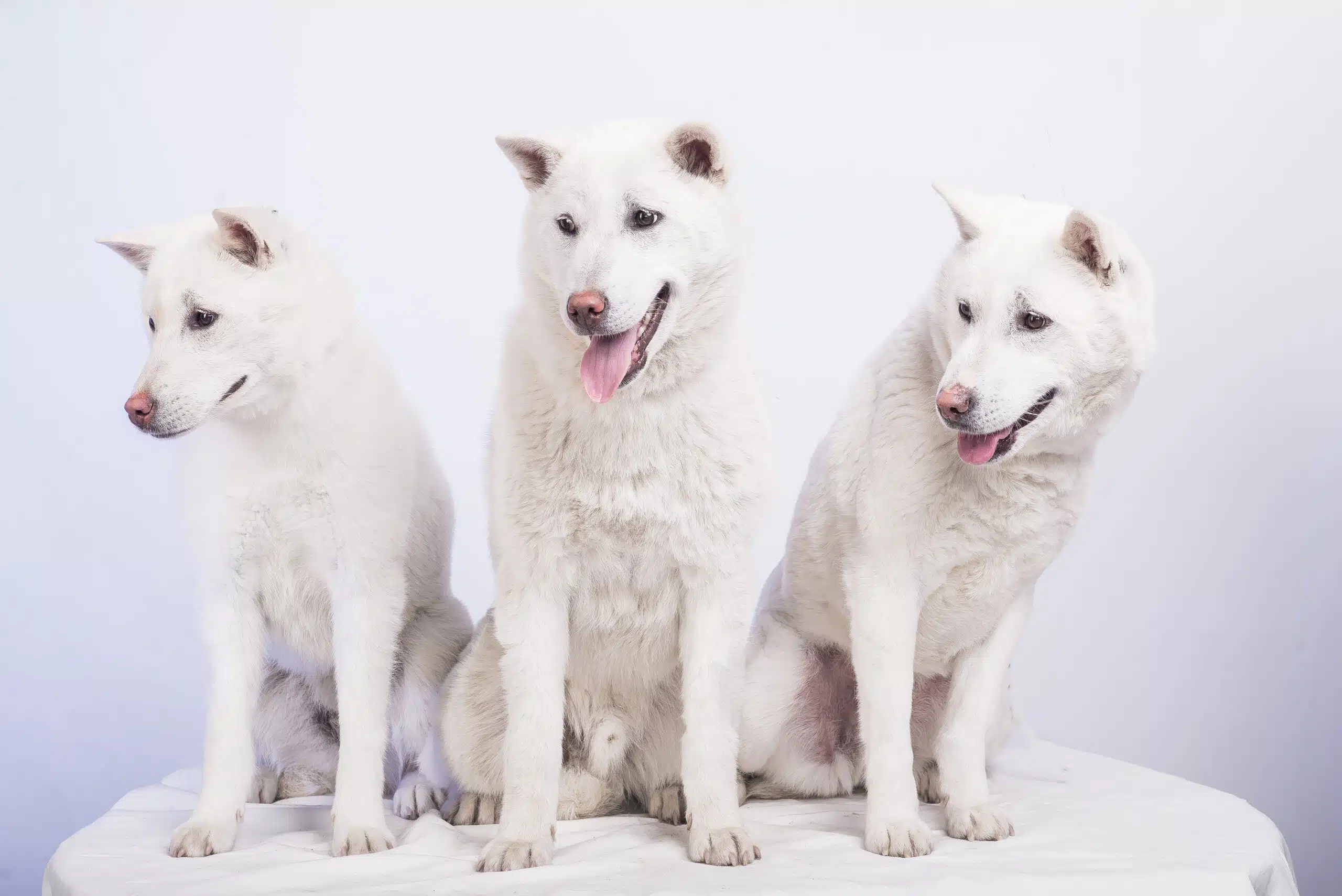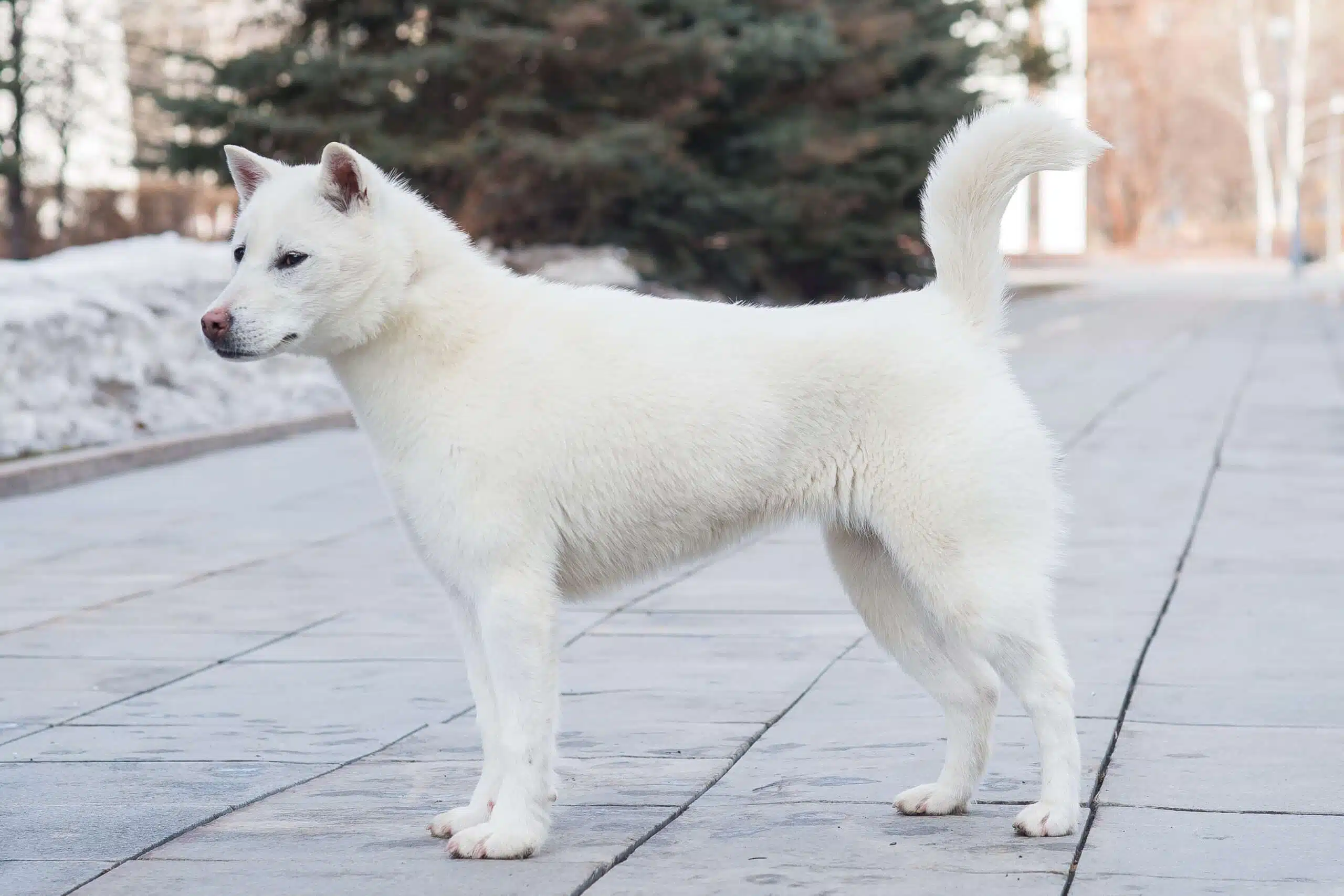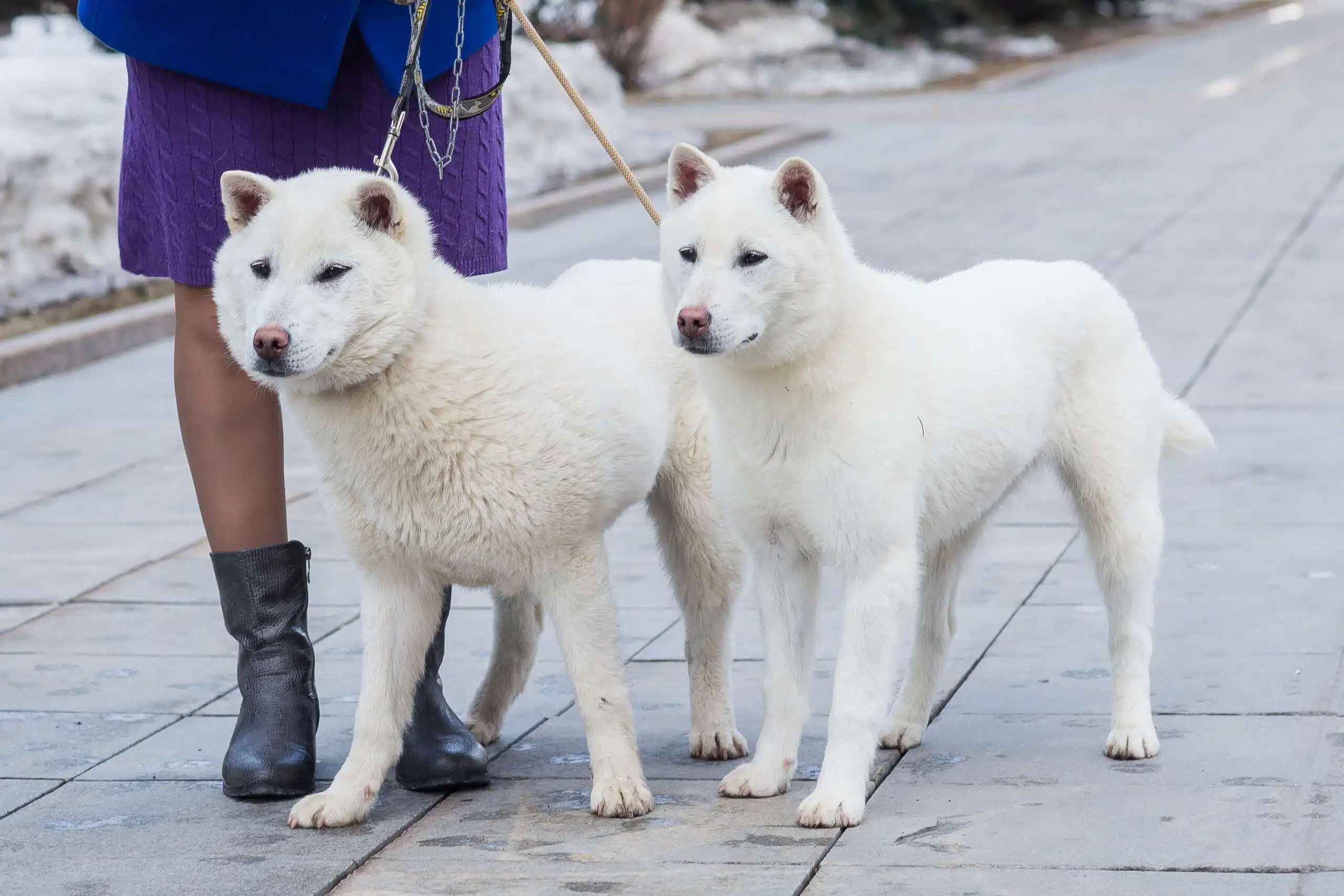Kishu Ken

Dating back to over three millennia, the Japanese Kishu Ken is an honorable and faithful breed of dog. It’s sometimes called the Kishu Inu or simply the “Kishu Dog”, yet unfortunately not many people in Western countries are aware of it. The name ‘Kishu’ derives from a province in Japan which happens to be where this remarkable canine originally hailed from!
The Kishu, a beloved family pet in Japan, has been used by the Japanese people for centuries to hunt various animals such as boar and deer. Unlike other hunting dogs who bark incessantly when tracking their target, these tenacious canines are known for their silent stalker capabilities – they will patiently wait with whatever animal they have cornered until the human hunter arrives. They’ve even been seen scaling trees while searching for prey! Even though some of these pups still work today, usually this breed is now kept as cherished members of families across Japan.
The Kishu dog, a medium-sized breed, is often associated with three other breeds in Japan that share similar attributes: the Hokkaido Ken, Kai Ken and Shikoku Ken. In the 1930s this charming canine was recognized as an official national treasure of Japan when it began to be standardized.
The Kishu Ken breed initially had a diverse array of coat colors, from brindle to red. However, due to popular demand in the early 20th century for white fur by hunters who desired highly visible dogs, selective breeding ensued and this specific trait was favored. While there are still some rare examples of existence today such as red or brindle Kishu Ken, they become fewer and further between each passing year.
The Kishu Ken has a dual-layered coat, which means that they will experience shedding twice annually – during spring and fall. This could make them an unsuitable option for those who suffer from allergies. Nevertheless, grooming is quite effortless the rest of year – a regular brushing once every week should suffice! After all, the Kishu Ken are known to be very clean dogs in general!
The Kishu is renowned for its formidable courage and commitment when used for hunting, as it will never shy away from a challenge. These dogs are known to be stealthy yet also possess an unwavering small animal prey drive – they can even attempt to pursue cats or tiny pups! If you plan on introducing a Kishu into your household that already holds pets, we advise caution and patience at all times.
The sooner you socialize your Kishu with other pets, the more likely they are to become an integral part of your family. Praised for their unwavering loyalty and devotion, Kishus often form a special bond with their owners. They will prioritize them over anyone else, showering the kids in the home with love and affection. A Kishu is truly one family dog!
The Kishu is an exceptionally intelligent breed, and can be house-trained quickly with the right guidance. However, they are known to attempt to dominate over their family members and other animals in the household – making it essential for owners to set themselves as ‘alpha’ within their home. First time pet owners should probably look into another breed altogether since a strong willed Kishu may prove difficult without proper training protocols in place.
As these dogs are incredibly athletic and active, they need to be able to roam a large house with an expansive yard. Exercise is also necessary, so daily outdoor activity should be provided for them. When walking outside of the home environment, keeping them on a leash is recommended as their hunting tendencies may lead them astray and also due to their intolerance towards some small breeds of dog. Consequently it’s important that any yard where they’re unleashed in should have secure fencing or walls around it.
- Group AKC Foundation Stock
- Origin Japan
- Size Medium
- Weight 30 to 60 pounds
- Coat Length Short
- Coat Type Double
- Colors Black, Black & Tan, Brindle, Red, White
- Other Names Kishu, Kishu Inu
- Temperament Alert, Dignified, Docile, Faithful, Noble




